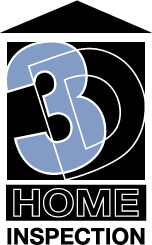From time to time, I’ll be writing posts about home inspection that might be of interest to a Realtor®. I’m hoping to help Realtors understand why home inspectors call out certain things during an inspection. I know many experienced Realtors are very aware of the common items we call out. That said, I hope this series will help a newer Realtor® and provide some golden nuggets to the veterans.
The Basics of Home Inspection
What is a home inspection?
A home inspection is
- An objective, opinion-based, non-invasive visual inspection of a house’s systems and components that are readily-accessible at the time of the inspection. It is not technically exhaustive.
- A function and safety inspection rather than a code inspection.
What is a home inspector?
Home inspectors
- Are generalists and not specialists. They report on their professional opinions regarding the significantly deficient systems or components of a house.
- Only conduct a building inspection. Home inspectors do not conduct architectural, engineering, or environmental services, surveys, or analysis.
How does an Illinois home inspector know what to do and inspect?
In 2003, Illinois created the Home Inspector License Act. This act covers all the legalities of the home inspection industry in the state. In this Home Inspection Information for Realtors series, I will concentrate on Subsection 1410.200 of the law. This section covers Standards of Practice (SOP).
What are the Illinois Home Inspector Standards of Practice (SOP)?
The SOP establishes a minimum and uniform standard of the systems and components home inspectors should examine. It also provides information for clients about the readily accessible systems and components the inspector will examine. (That is, unless the inspection agreement expressly excludes a system or component.) Each home inspector may determine the report style and formatting as long as it contains the required minimum and uniform standards.
What are some terms defined by the SOP?
The SOP defines the practice of the home inspection, provides guidelines, and defines certain terms home inspectors use. Two noteworthy terms are “Significantly Deficient” and “Readily Accessible.”
- Significantly Deficient means an item is unsafe or not functioning. A home inspector rarely finds a system or component not functioning. But many are in need of repair due to damage, lack of maintenance, improper materials or installation. Because of this, it’s an inspector’s responsibility to point these concerns out to the buyer.
- Readily Accessible means an item is available for visual inspection. That means the inspector shouldn’t need to move personal property or dismantle or destroy something to perform an inspection. A home inspector should not do anything that causes damage to the property, increases his or her liability, or jeopardizes anyone’s safety. If the inspector can’t make arrangements with the seller for access to a system or component, he or she will disclaim it.
What are some things the SOP requires home inspectors to do?
The SOP requires requires two specific written documents.
- Home inspectors must enter into a written agreement with the client prior to the home inspection.
- The inspector must provide a written inspection report within two business days (excluding weekends and holidays) of the conclusion of the inspection. Home inspectors should review this timeframe with the buyer to ensure it is within the inspection contingency period. If it’s not, the buyers and sellers should negotiate an extension.
What does the SOP require in a home inspection report?
According to the Illinois Home Inspector Standards of Practice, the home inspection report must:
- Describe the systems and components that the inspector examined.
- Report on those systems and components which, in the opinion of the inspector, are significantly deficient.
- Include, for any significant deficiency:
- a reason why, if not self-evident, the system or component is significantly deficient.
- a recommendation for whether the reported deficiency should be corrected or monitored.
- Include a disclosure of any systems or components designated for inspection that were present at the time of the inspection but were not inspected, and the reason why.
There are also several exclusions to keep in mind. The SOP:
- Is not intended to stop inspectors from including other services (such as radon, mold, and lead paint testing), pest inspections (such as termites, carpenter ants, and mice), or sewer scope inspections.
- Does not require a home inspector to determine the cause of the significantly deficient system or components, or specify repairs.
- Does not prevent the inspector from excluding systems and components if the exclusion is specified in the written agreement.
